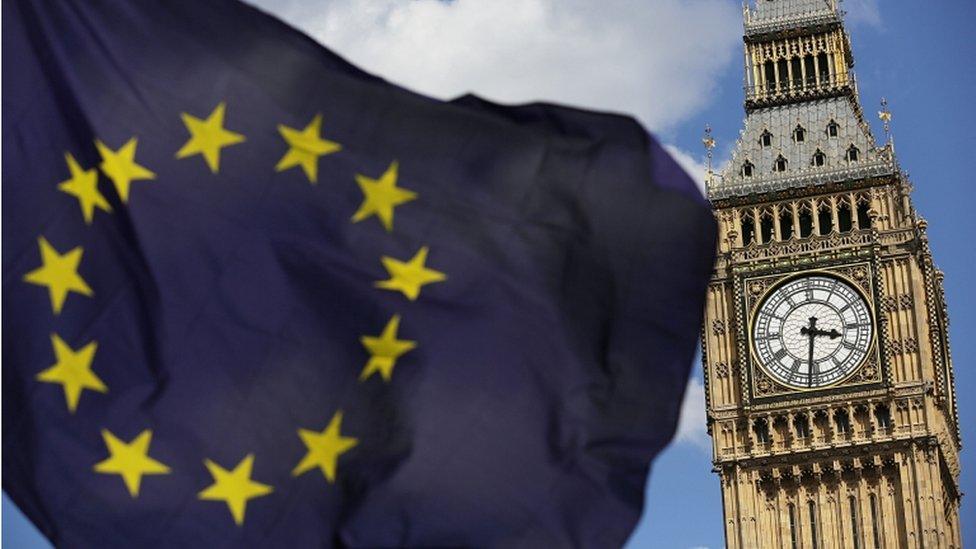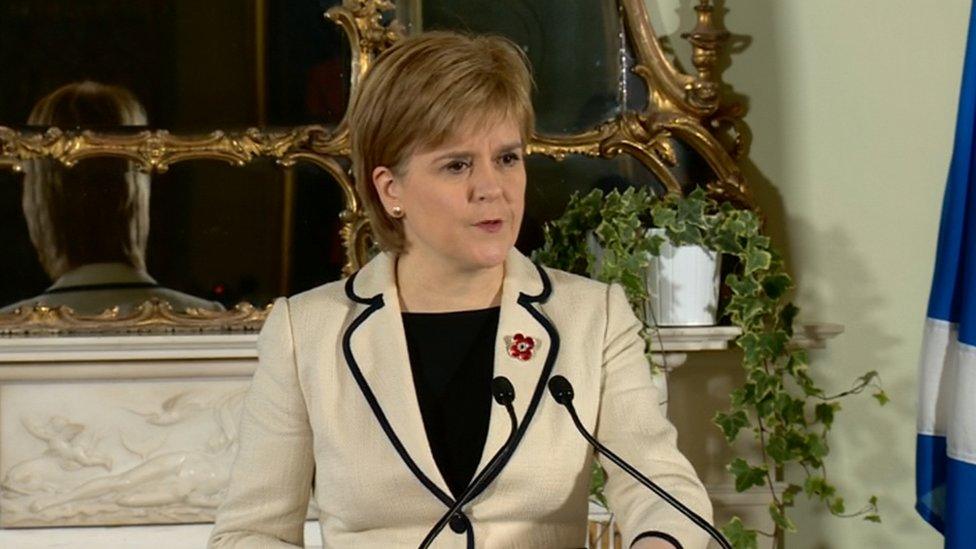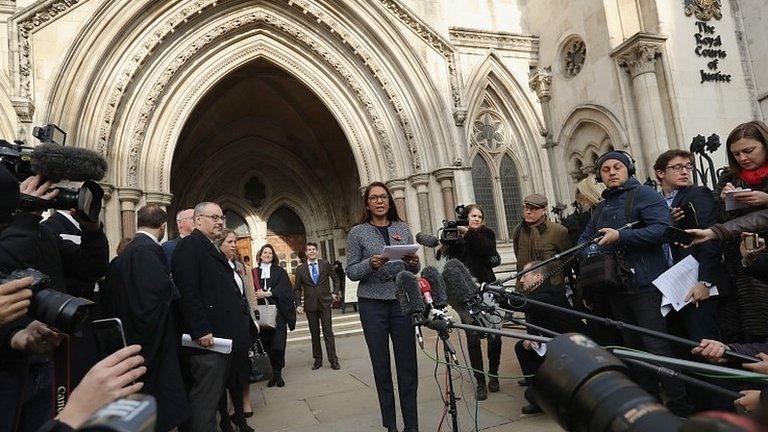Lord Advocate calls for Holyrood consent over Brexit
- Published

James Wolffe QC is to put forward arguments for the Scottish government at the Supreme Court
Scotland's Lord Advocate will argue at the Supreme Court that Holyrood's consent should be sought over legislation invoking Article 50.
James Wolffe QC is to intervene on behalf of the Scottish government in the appeal case over triggering Brexit.
His written submissions, external says Brexit will impact on devolved areas and thus engage legislative consent conventions.
Theresa May has pledged to begin the formal process of taking the UK out of the EU by the end of March 2017.
The High Court ruled that MPs must be given a vote on whether the UK can start this process, which Mrs May wants to do using existing ministerial powers - the royal prerogative.
The UK government has appealed against this decision, and the Scottish and Welsh governments along with several other groups have won leave to intervene in the Supreme Court hearing.
Constitutional principle
Mr Wolffe argues that Brexit will change the legislative competency of Holyrood and the executive competence of the Scottish government, with changes to laws cutting across many devolved areas.
He said that under the Scotland Act, these changes "may not be affected by an act of the executive alone", adding that "it is a matter of constitutional principle that laws cannot be amended or repealed by an exercise of the royal prerogative alone".
Mr Wolffe is to argue in court that not only should MPs be given a vote - describing triggering Article 50 with the royal prerogative alone as "unlawful" - Holyrood's legislative consent should also be sought.
He wrote: "The effects of withdrawal from the EU on devolved matters are such as to engage the legislative consent convention under which the UK parliament will not normally legislate with regard to devolved matters without the consent of the Scottish Parliament.
"The constitutional requirements, according to which any decision to withdraw from the EU must be taken, accordingly include both the legal requirement for an Act of the UK Parliament, and the legislative consent convention."
The UK government maintains that an act of parliament should not be necessary, and said it "will be taking strong legal arguments to court" at the appeal in December.
The Attorney General has previously argued that Holyrood should not be able to wield a "veto" via consent legislation.
Scotland's Brexit minister Mike Russell said "the views of the people in Scotland cannot simply be brushed aside".
- Published18 November 2016

- Published8 November 2016

- Published3 November 2016
